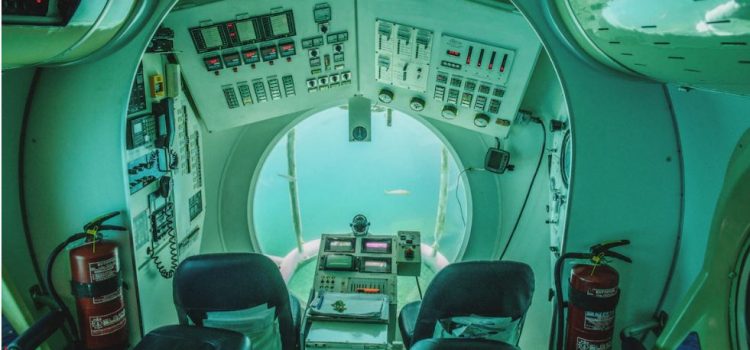
This is a free excerpt from one of Shortform’s Articles. We give you all the important information you need to know about current events and more.
Don't miss out on the whole story. Sign up for a free trial here .
What is extreme tourism? What dangers does it pose—and does it offer any redeeming social value? What is its future?
On June 20, the US Coast Guard announced that a “catastrophic implosion” had killed five passengers on the Titan submersible. The deadly, $250,000-per-seat escapade raises questions about the perils and possible benefits of extreme tourism—an industry growing in popularity among the world’s financial elite.
Keep reading for the two points of view on extreme tourism.
Tourism for the Elite
Extreme tourism is travel to a dangerous destination—or participation in dangerous, often life-threatening events—for risk, thrill, or adventure.
A growing number of companies are coordinating the dangerous adventures, including:
- OceanGate, the maker of the fated Titan, which since 2021 has offered 10-day trips to view the wreckage of the Titanic for $250,000 a seat.
- Richard Branson’s Virgin Galactic, which recently launched its first commercial space flight and has a wait list of 800 thrill-seekers who have paid $250,000 to $450,000 for a 90-minute, round-trip flight.
- Elon Musk’s SpaceX, which plans to offer three-day trips to circle the moon—once Musk’s rocket passes tests that it has, to date, failed. Every seat on the future flight has already been booked by Japanese billionaire Yusaku Maezawa, who may have paid upwards of $70 million.
View 1: Extreme Tourism Is a Dangerous Indulgence
Some experts argue that the ultra-rich’s creation of and participation in extreme tourism opportunities is problematic because they:
- Are dangerously unregulated. Both commercial space travel and deep sea tourism are unregulated—a reality that some say led to the unnecessary deaths of Titan submersible passengers.
- Create needless expenses for taxpayers. When extreme tourism adventures turn catastrophic, taxpayers may foot the bill for rescue and recovery efforts, which can cost millions of dollars.
- Prioritizes billionaires’ self-indulgence over the needs of the collective. Some believe that the globe’s financial elite are squandering their fortunes on frivolous adventures when they should, instead, allocate that funding to causes that support the greater good.
View 2: Extreme Tourism Is Good for Society
Other experts contend that the ultra-rich’s creation of and participation in extreme tourism opportunities offer key benefits to society, including that they:
- Spark innovation through competition. Billionaires Elon Musk, Jeff Bezos, and Richard Branson’s space tourism initiatives are rooted in different technologies and goals. Some say that the diversity of their efforts, and competition with one another to produce the best space travel experience, will fuel innovation in the marketplace and strengthen the overall space industry.
- Could yield extraordinary advancements to improve life on Earth. Billionaires’ exploration of, and contributions to, the private space industry open the door for new technologies to be developed in space that could positively impact life here.
- Facilitate critical research. Billionaire hedge fund founder Ray Dalio, Hollywood director James Cameron, and Google executive chairman and his wife, Eric and Wendy Schmidt, have given millions of dollars and use of their personal research vessels and submersibles to support the work of oceanographers. Their donations offer a critical lifeline to researchers who would otherwise lack the funding necessary to study the reciprocal relationship between humans, weather, and climate changes.
Looking Ahead
Experts say that extreme tourism could become safer in the near future—at least for those journeying into space. The Federal Aviation Administration is developing a safety framework and updating recommended practices for commercial space travel in anticipation of the potential October end of a moratorium that has, to date, prevented it from regulating space travel.
The prospects of deep sea extreme tourism regulation are less clear, as the government has shown limited interest in providing oversight in the underwater arena without a demonstrated need to do so.

Want to fast-track your learning? With Shortform, you’ll gain insights you won't find anywhere else .
Here's what you’ll get when you sign up for Shortform :
- Complicated ideas explained in simple and concise ways
- Smart analysis that connects what you’re reading to other key concepts
- Writing with zero fluff because we know how important your time is






